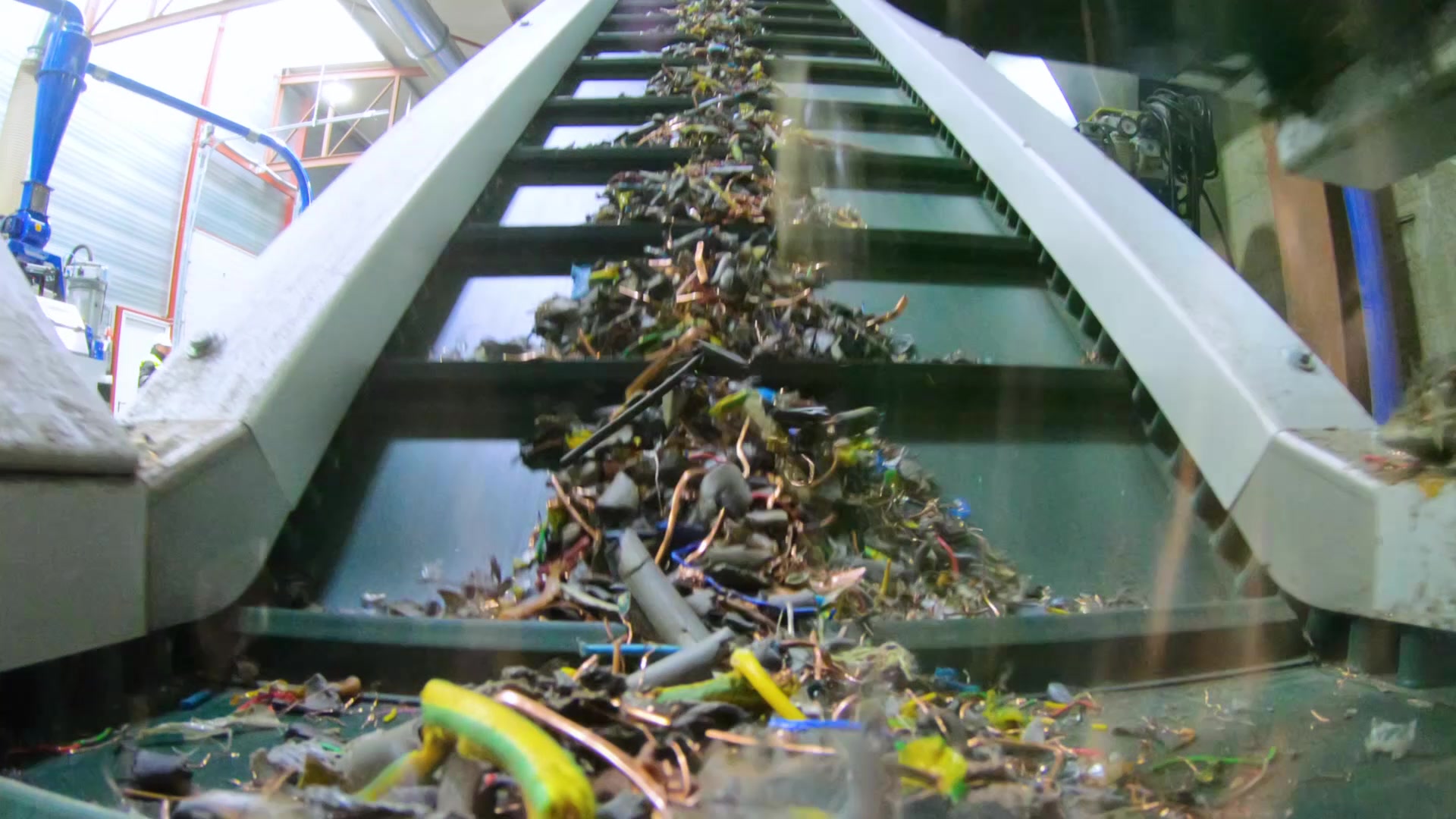News 31 January 2023 certificate holder highlighted
Metal recycling and CO2 savings go hand in hand at Riwald Recycling
Riwald Recycling is a pioneer in the recycling of metal products and was recently certified at level 5 of the CO2 Performance Ladder. Sustainability manager Ömer Avci: "In our sector, there are actually only two sustainability certificates that really matter: an ISO certificate and the CO2 Performance Ladder; if you really want to show that you take CO2 reduction seriously.
Riwald Recycling in Almelo processes some 700 to 1,000 tonnes of material a day, ranging from white goods to production waste and even aircraft. The company in Almelo employs about 40 people. Since recycling is a complex process, Riwald could not lean on an external consultant to guide them through the CO2 Performance Ladder certification process. They had to develop the knowledge themselves in-house, and that worked out well.

Growing to the highest level
For the emissions inventory at level 3, this was easily achievable, as Riwald's footprint consists of two material streams: emissions from the use of diesel and electricity. Ömer: "When we committed to advancing to level 5, things changed. At that point, we also had to include scope 3 emissions in the inventory. On top of that, the more material we process into high-quality raw materials, the higher our own emissions become because of the energy consumption required to do so. However, the companies that use our products actually avoid emissions. That initially felt contradictory but Riwald found a way to deal with it.'
Ömer continues: 'we have therefore decided to link scope 1 and 2 targets to the tonnages of material we process. For transport, for example, our target for 2024 (compared to reference year 2020) is 18% CO2 reduction per tonne of material processed. That way, we can recycle more materials and still continue to monitor our performance and meet targets.' Riwald Recycling recently introduced another new measure to reduce emissions from transport: lightweight containers. The trucks taking materials off and on can only carry a maximum number of kilos. If the container into which the material goes is lighter,' the truck can carry more material each trip, reducing emissions per kilo of material. Simple but effective.

High-tech metal recycling
Riwald owns a unique metal processing machine that can separate ferrous from non-ferrous metals. (A 'ferrous metal' is a material in which iron is the main constituent, ed.) The innovative operation allows the granulator with the associated waste separation plant to separate the remaining waste from the incoming metals, making practically all raw materials suitable for 100% reuse. This ensures clean end products with end-of-waste status, which in turn brings higher yields. It also has the advantage that the end products can be offered directly to manufacturing companies, smelters and final processors for reuse. Recycling metals partially avoids the production of metals from primary raw materials (ores). This leads to a saving in CO₂ emissions compared to the production of primary metals. With this, Riwald Recycling contributes to the de-carbonisation of the metal industry, which is in line with CO₂- Performance Ladder level 5.
Making premises more sustainable
The necessary measures are also being taken on Riwald's premises. For instance, the company invested in electric cranes and grab arms that replaced outdated diesels. 'Very valuable for us, especially in these uncertain times when fuels have become considerably more expensive. So we also want to invest in solar energy and battery technology to store that energy,' says Ömer of their future plans. The extracted materials can be used for many purposes: new phones, producing steel or even on Riwald's own premises: 'On our premises, we demarcate different zones for materials, using concrete blocks. From the materials we process, we can build circular blocks and we don't have to buy new concrete blocks.'

Challenges in metal recycling
When asked what the biggest sustainability challenge for Riwald Recycling is, Ömer replied: 'I hope that we can set up our processes in such a way that we can eventually process 100% of the products we receive for reuse and we can achieve a 100% recycling rate. We are moving in the right direction in that respect, but we are not always entirely successful yet. It is mainly the complex products that are difficult to separate. Fortunately, we are increasingly working with industrial designers. We notice that in the design phase of new products, much more consideration is already given to what will happen to the product when the consumer no longer uses it. Seeking that collaboration with manufacturers is very valuable for us to jointly achieve design for recyclability.'
